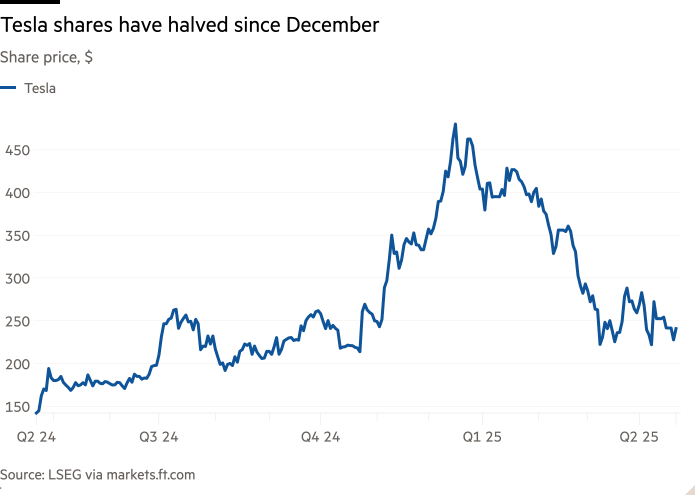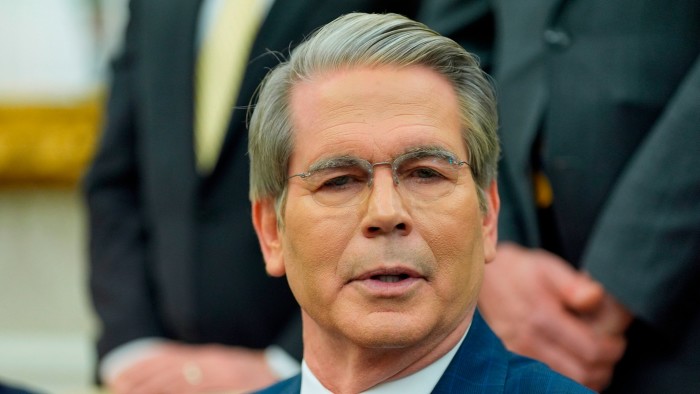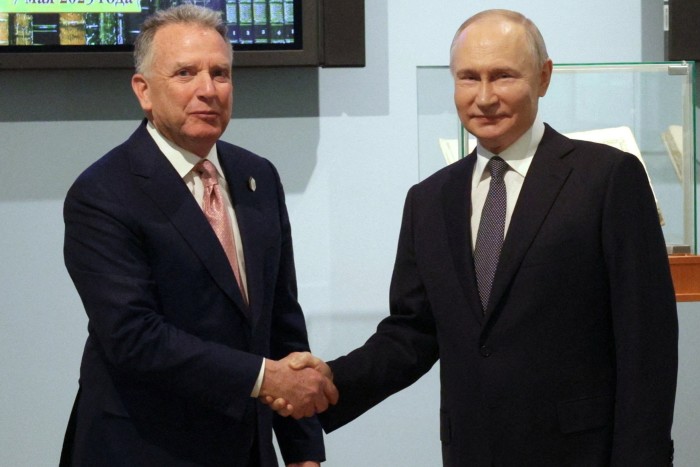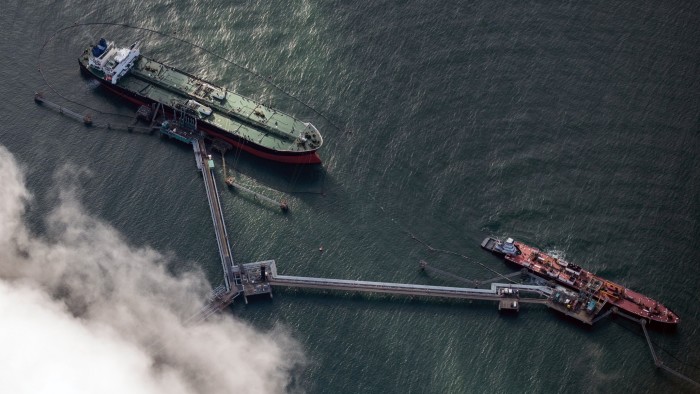What will an emboldened Netanyahu do next?
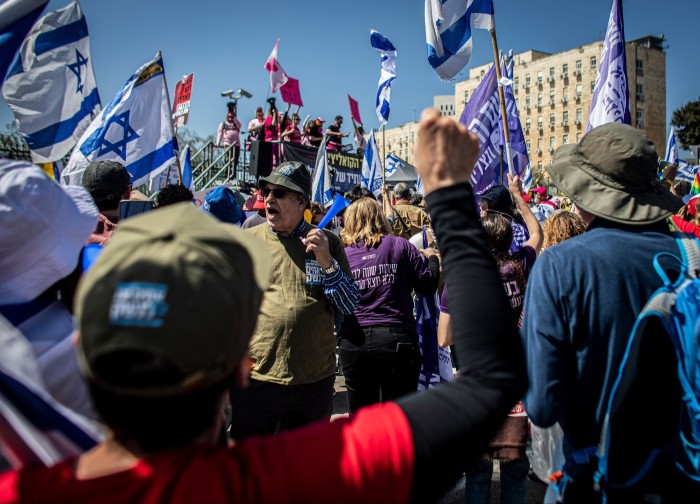
Even by the tumultuous standards of Israeli politics, the night Benjamin Netanyahu’s cabinet decided to sack the country’s domestic spy chief was something out of the ordinary.
Protesters outraged by the move used cars to block roads near the prime minister’s office in Jerusalem, and police used a hammer and a rock to smash the cars’ windows. Inside, Netanyahu and his right-wing coalition allies indulged in a character assassination of Ronen Bar — faithfully leaked, almost in real time, to the Israeli media — before voting in the early hours to dismiss him.
What made the move so remarkable was not just the fact that an Israeli cabinet had voted, for the first time ever, to oust the head of Shin Bet but also its timing. Not only was the internal security agency investigating whether aides in Netanyahu’s office had inappropriate financial dealings with Qatar, but three days earlier, on March 18, Israel had shattered a two-month-old truce with Hamas.
Now, as Israeli troops resumed their offensive in Gaza, the cabinet had also trained its sights on one of the most important figures in Israel’s security apparatus, and, in doing so, inflamed the bitter divisions in Israeli society that had convulsed the country before the war.
Israel’s president, Isaac Herzog, was so disturbed by the situation that he issued a video criticising the government and branding it “inconceivable” to send “our sons to the front while at the same time pursuing controversial moves that deepen division within the people”.
But in many ways, the coincidence of the two moves was emblematic of a broader change in Israeli politics. After spending a year on the back foot in the wake of Hamas’s devastating attack on October 7 2023, Netanyahu has increasingly gone on the offensive in recent months at home and abroad, in a shift that diplomats and analysts say will have profound consequences for Israel and the Middle East.
Buoyed by Donald Trump’s return to the White House, and scarred by the failures of October 7, Netanyahu’s government has adopted an ultra-aggressive new military doctrine that the premier bragged last month was “changing the face of the Middle East”. Since the turn of the year, Israeli forces have seized land from neighbours and carried out strikes far beyond Israel’s borders. Most consequentially of all, Netanyahu is pressuring Trump to back military action against Iran.

At home, Netanyahu’s administration, widely regarded as Israel’s most right-wing ever, has resumed a bitter power struggle with the judiciary and other pillars of the state that — before the war — had triggered months of street protests and the biggest domestic crisis in Israel’s history. The renewed confrontation has sparked fears the country could yet slide into a constitutional crisis. But for many, the reopening of the yawning divisions over the very nature of the Israeli state is more worrying still.
“There is an identity crisis of the whole of Israeli society. And this is why, if you ask me, what we are facing now is an existential crisis,” says Ami Ayalon, who ran Shin Bet during Netanyahu’s first term in office. “I cannot describe what Israel will be four years from now.”
So far, the biggest effects of the government’s more aggressive approach have been felt beyond Israel’s borders.
Over the past few months, Israeli forces have intensified their operations in the occupied West Bank and resumed the war in Gaza, again displacing hundreds of thousands of Palestinians and seizing ever greater swaths of territory in a bid to force Hamas to capitulate and free the 59 hostages it still holds in the enclave.
Israel has also grabbed land from its northern neighbours in a series of moves that have sparked international outcry. In Lebanon, where it fought a destructive war with Hizbollah last year, the Israeli military has set up outposts at five locations close to the two countries’ de facto border, and pledged to remain there indefinitely.
In Syria, it launched a series of lightning air raids to destroy the country’s military capabilities in the wake of the collapse of the Assad regime, and sent troops into a 235 sq km UN-monitored demilitarised zone. Netanyahu has even declared that land a further 50km into Syria should become part of a demilitarised “area of influence”.
But the government’s domestic moves are also causing turbulence for Israelis themselves. For almost a year leading up to Hamas’s October 7 assault, Israel was gripped by a fight over the government’s controversial drive to weaken the judiciary that quickly morphed into a rancorous battle over the country’s identity, pitting Netanyahu and his ultranationalist and ultrareligious allies against more secular and liberal Israelis.
The fight was put on hold as Israelis closed ranks in the aftermath of Hamas’s attack. But last month, the government reignited tensions with a flurry of moves that pushed businesses to threaten to go on strike and led to one of the biggest rounds of protests since the start of the war.
In the space of a week, the government voted to sack Bar, began proceedings to dismiss the attorney-general Gali Baharav-Miara — who is both Israel’s top legal official and one of the key checks on government power — and voted through changes that would allow politicians alone, rather than politicians and judges, to decide Supreme Court appointments.
Netanyahu and his allies defended the moves as part of a drive to rein in a “deep state” of bureaucrats and judges bent on thwarting their plans. They say the prime minister had lost faith in Bar after the catastrophic security failures of October 7, and that the attorney-general had made “effective co-operation” impossible by constantly stymying the coalition’s agenda.
But his opponents see the initiatives as part of a broader fusillade against Israel’s already weak checks and balances, and denounced the attempts to sideline Bar and Baharav-Miara — who is overseeing Netanyahu’s long-running corruption trial — as a clear conflict of interest. This month, Israel’s Supreme Court blocked Bar’s dismissal until further notice.
Although ministers fiercely criticised the court’s stance, they have so far stopped short of ignoring it — a step that would pitch Israel into a full-blown constitutional crisis. But legal scholars warn there are several other issues — such as the attempt to oust Baharav-Miara — that could yet spark one. “They are ticking [bombs],” said Suzie Navot, a professor of constitutional law and vice-president of research at the Israel Democracy Institute. “And we will see if it is possible to defuse them”.
Others argue that what is ultimately at stake is what version of Israel should prevail: the existing system of — albeit weak — checks and balances; or the vision favoured by Netanyahu’s allies of an unshackled executive able to ride roughshod over opponents.
“It is not about right and left. It is about the concept of Judaism and the concept of democracy,” says Ayalon. “If you ask many people who are sitting in government or support the government they will say democracy is the voice of the majority. They couldn’t care less about human rights, civil rights, minority rights . . . this is the major crisis we are facing.”
Diplomats and analysts say Netanyahu’s shift to the offensive has been driven by a range of factors. But perhaps the most important has been Trump’s re-election as US president.
During his first term, Trump made a string of pro-Israel moves, reversing decades of US policy by recognising the contested city of Jerusalem as Israel’s capital and saying the US would no longer deem Israeli settlements in the West Bank a violation of international law.


Since returning to office, Trump has continued in a similar vein, appointing hardline supporters of Israel to key positions and approving a shipment of 2,000lb bombs paused under Joe Biden.
His administration has also provided political cover for Israel’s actions abroad, backing its decision to return to war in Gaza, and its continued presence in Lebanon. Most strikingly of all, Trump floated a plan to displace entirely Gaza’s 2.2mn citizens, bringing an idea long confined to Israel’s far-right, and widely regarded as ethnic cleansing, into the country’s mainstream.
“The most dangerous thing Trump did is put this on the agenda,” says an Arab diplomat. “Biden was a Zionist, but still put some pressure on Israel. Trump is not ideological, but he is giving [Netanyahu] a free hand.”
Domestically, too, Trump’s example has emboldened Netanyahu. Two days before his cabinet voted to oust Bar, Netanyahu took to X to draw comparisons between his fight with Israel’s judiciary and the US president’s own crusade against US checks and balances.
“In America and in Israel, when a strong rightwing leader wins an election, the leftist Deep State weaponises the justice system to thwart the people’s will,” Netanyahu wrote. “They won’t win in either place! We stand strong together.”
“Netanyahu sees [Trump’s return] as a major change,” says one coalition MP. “He wants to copy him. He thinks that there’s now a kind of different language all over the world. I think psychologically speaking this is the main factor . . . He feels stronger.”
Analysts say the need to placate his far-right coalition partners also played a role in Netanyahu’s shift to the offensive — particularly in the domestic sphere.
In January, Itamar Ben-Gvir, the ultranationalist national security minister, pulled his extreme-right Jewish Power party out of the coalition in protest at its approval of a truce with Hamas, leaving Netanyahu with a fragile two-seat majority in parliament ahead of a crucial budget vote in March.
But Ben-Gvir, who has long demanded the sacking of Bar and Baharav-Miara, left the door open to return to the coalition if Israel resumed the war. The week before the budget vote — which would have triggered elections if the coalition had lost — the government restarted the war, and made its moves against Bar and Baharav-Miara. Ben-Gvir returned to the coalition.
“Netanyahu had to satisfy the partners and so, domestically, what he did was exactly that,” says Roni Rimon, a political strategist and owner of a PR agency, who ran Netanyahu’s 2009 election campaign.
Others are even blunter. “After October 7 we did not have any other option [than to go to war with Hamas],” says Ayalon. “But after five or six months it was obvious that we had achieved all the military goals [we could in Gaza]. What we see today is totally a political war. Because the moment this war ends, Netanyahu will not have a coalition.”
The passage of the budget means that one of the main ways an Israeli government can fall has been removed for another year. But given the volatility of Israeli politics — the country had five elections between 2019 and 2022 — people close to the government are still wary of predicting it will last until the end of its term in October 2026.


One potential flashpoint within the coalition could be a dispute over a long-standing and increasingly controversial exemption from military service for ultraorthodox religious students. An abrupt change of stance from Trump, such as demanding an end to the war in Gaza, could be another.
“Trump has given them confidence, but they know he can change his mind in a moment. Just look at what happened [with the tariffs],” says a person familiar with the thinking of Netanyahu and his inner circle. “So it’s not indefinite confidence.”
Yet despite the caution, even Israel’s opposition is reconciling itself to the likelihood the government will remain in power until at least the beginning of next year. When Naftali Bennett, the former prime minister widely expected to be one of Netanyahu’s main challengers at the next election, registered a new party this month, it was tellingly named “Bennett 2026”.
Until then, analysts expect the government’s more combative stance to continue. Domestically, coalition figures see the fight with the judiciary as a way of rallying their base. “Nothing electrifies the hardcore constituency like the fight against the judiciary and the Supreme Court,” says the coalition MP.
The government is showing few signs that it will moderate its more aggressive approach abroad either.
As mediators tried to revive talks over a renewed ceasefire in Gaza last week, Israel’s defence minister Israel Katz said Israeli forces would remain in land they had seized in Gaza, Lebanon and Syria. But the biggest question — and the one with the most far-reaching implications — is what it will do in Iran, which has been aggressively expanding its nuclear activity.
Netanyahu has spent much of his career warning that an Iranian nuclear weapon would pose an existential threat to Israel’s security and has vowed to prevent Tehran obtaining one. He has been pushing for Trump to back a strike on Iran’s nuclear programme since before the US president formally returned to office.
For now, Trump is seeking to negotiate a deal with Iran. Diplomats are sceptical Netanyahu would launch a strike without a green light from Trump, both for fear of angering the US president and because most believe Israel would only be able to set back Iran’s nuclear programme for a relatively short period without US military support.
But Israeli officials believe that their decimation of Hizbollah, and the damage to Iran’s air defences and missile production facilities in exchanges between the two countries last year, have given it a window to act that will not remain open for long.
“Netanyahu’s big picture for almost 30 years . . . has been about Iran. This is what is on his mind. More than Gaza, more than Syria, more than Lebanon, this is the head of the snake,” says Nadav Shtrauchler, a political strategist who has worked with the Israeli premier.
“From October 7, he has been trying to rewrite his legacy . . . No one will forget what happened that day. It was on his watch. But if he changes the situation with Iran, his history will also be rewritten.”



